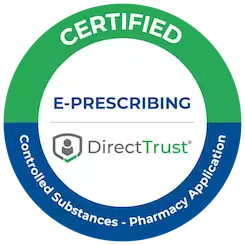The future of healthcare is all about providing high-quality, cost-effective care for a rapidly aging population. As the “silver wave” of care continues to grow in size and complexity, it is essential to leverage long term pharmacy solutions to help navigate the demands of this population. In this article, we will explore the benefits of long term pharmacy solutions and discuss strategies for maximizing their potential.
Introduction to Long Term Pharmacy Solutions
Long term pharmacy solutions are specifically designed to meet the needs of elderly and disabled individuals. They provide a range of services, from medication management to specialized medication packaging, to ensure patients have access to the medications they need when they need them. These solutions also help to reduce the cost of medications, as well as reduce the risk of medication errors and other complications associated with aging or disability.
The most important benefit of long term pharmacy solutions is the ability to provide personalized care for the patient. By taking into account the individual’s medical history, current medications, and lifestyle, pharmacists are able to create a comprehensive plan that meets the patient’s needs. This helps to ensure that the patient has access to the medications they need, while also reducing the risk of adverse drug interactions and side effects.
Benefits of Long Term Pharmacy Solutions
Long term pharmacy solutions provide a range of benefits for aging and disabled patients. First and foremost, they help to ensure that patients receive the medications they need when they need them. This is particularly important for elderly and disabled individuals, who may have difficulty accessing the medications they need due to limited mobility or cognitive impairment.
Long term pharmacy solutions also help to reduce the costs associated with medications. By working with the patient’s healthcare team, pharmacists can create a customized medication plan that takes into account the patient’s budget. This helps to ensure that the patient can access the medications they need at an affordable cost.
Finally, long term pharmacy solutions help to reduce the risk of medication errors and other complications associated with aging or disability. By providing personalized care, pharmacists are able to identify any potential issues with medications and provide guidance to the patient and their healthcare team. This helps to ensure that the patient is receiving the highest quality of care possible.
Types of Long Term Care Pharmacies
Long term care pharmacies can be divided into three main categories: nursing home pharmacies, assisted living pharmacies, and home health pharmacies. Each type of pharmacy specializes in providing medications and other services to the patients they serve.
Nursing home pharmacies specialize in providing medications and other services to nursing home residents. They are typically staffed by a pharmacist and other healthcare professionals, who work together to create a comprehensive medication plan for each patient. They also provide specialized packaging services, such as blister packaging and compliance packaging, to ensure that the medications are taken correctly.
Assisted living pharmacies specialize in providing medications and other services to the residents of assisted living facilities. They typically employ a team of pharmacists and other healthcare professionals to create a customized medication plan for each patient. They also provide specialized services, such as medication therapy management and medication synchronization, to ensure that the patient’s medications are taken correctly.
Home health pharmacies specialize in providing medications and other services to patients in their own homes. They work with the patient’s healthcare team to create a comprehensive medication plan and provide specialized packaging services, such as blister packaging and compliance packaging, to ensure that the medications are taken correctly.
Nursing Home Prescription Management
Prescription management is an important part of long term care pharmacy services. Nursing home pharmacists are responsible for creating a comprehensive medication plan for each patient and monitoring the patient’s progress. This includes working with the patient’s healthcare team to ensure that the medications are taken correctly and that any potential issues are addressed.
Nursing home pharmacists also work with the patient’s healthcare team to create a medication reconciliation process. This process helps to ensure that the patient is taking the right medications at the right time and that any potential issues are addressed. It also helps to reduce the risk of medication errors and other complications associated with aging or disability.
In addition, nursing home pharmacists are responsible for providing specialized packaging services, such as blister packaging and compliance packaging, to ensure that the medications are taken correctly. This helps to reduce the risk of medication errors and other complications associated with aging or disability.
Assisted Living Pharmacy Services
Assisted living pharmacy services are designed to meet the needs of the residents of assisted living facilities. Assisted living pharmacists are responsible for creating a comprehensive medication plan for each patient and monitoring the patient’s progress. This includes working with the patient’s healthcare team to ensure that the medications are taken correctly and that any potential issues are addressed.
Assisted living pharmacists also work with the patient’s healthcare team to create a medication reconciliation process. This process helps to ensure that the patient is taking the right medications at the right time and that any potential issues are addressed. It also helps to reduce the risk of medication errors and other complications associated with aging or disability.
In addition, assisted living pharmacists are responsible for providing specialized packaging services, such as blister packaging and compliance packaging, to ensure that the medications are taken correctly. This helps to reduce the risk of medication errors and other complications associated with aging or disability.
Long Term Care Pharmacy Solutions and Medicare
Long term care pharmacy solutions are often covered by Medicare. This includes nursing home prescription management, assisted living pharmacy services, and home health pharmacy services. Medicare covers the cost of medications, as well as specialized packaging services, such as blister packaging and compliance packaging, to ensure that the medications are taken correctly.
It is important to note that Medicare does not cover all medications or all types of long term care pharmacy services. Therefore, it is important to speak with a Medicare representative to determine what is covered and what is not. This will help to ensure that the patient is receiving the highest quality of care possible.
Strategies for Maximizing Long Term Pharmacy Solutions
There are several strategies that can be used to maximize the potential of long term pharmacy solutions. First and foremost, it is important to create a comprehensive medication plan for each patient. This should be created in collaboration with the patient’s healthcare team, to ensure that all medications are taken correctly and that any potential issues are addressed.
It is also important to ensure that the patient’s medications are taken correctly. This can be done by using specialized packaging services, such as blister packaging and compliance packaging, to ensure that the medications are taken correctly. This helps to reduce the risk of medication errors and other complications associated with aging or disability.
Finally, it is important to make sure that the patient’s medications are affordable. This can be done by working with the patient’s healthcare team to create a customized medication plan that takes into account the patient’s budget. This helps to ensure that the patient can access the medications they need at an affordable cost.
The Role of Technology in Long Term Pharmacy Solutions
Technology is playing an increasingly important role in long term pharmacy solutions. In particular, technology is being used to create comprehensive medication plans for patients, as well as to monitor the patient’s progress. This helps to ensure that the patient is receiving the highest quality of care possible.
In addition, technology is being used to create specialized packaging services, such as blister packaging and compliance packaging, to ensure that the medications are taken correctly. This helps to reduce the risk of medication errors and other complications associated with aging or disability. Finally, technology is being used to create medication reconciliation processes, which help to ensure that the patient is taking the right medications at the right time.
Conclusion
The future of healthcare is all about providing high-quality, cost-effective care for a rapidly aging population. As the “silver wave” of care continues to grow in size and complexity, it is essential to leverage long term pharmacy solutions to help navigate the demands of this population. By taking advantage of the benefits of long term pharmacy solutions, such as personalized care and cost savings, individuals can ensure that they are receiving the highest quality of care possible. Additionally, by utilizing technology and utilizing resources such as those offered by Pharmcare USA, facilities can maximize the potential of long term pharmacy solutions.




